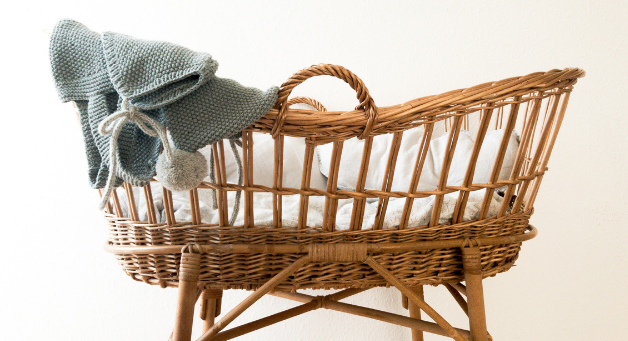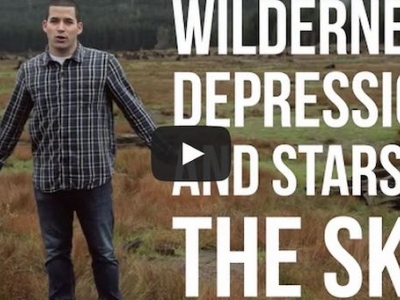
Perinatal mental health—Everyone’s responsibility
Having a baby should be the happiest time of your life, right? Alyson Officer discussed how church communities can support young families experiencing post-natal depression or anxiety
She appeared similar to many other women I had met as a perinatal psychologist. A preschooler was clinging to her legs, while she lugged a car capsule containing a tiny bundle who had fallen into a deep sleep. She was dressed immaculately but her hair and make-up suggested the morning routine hadn’t gone well. And she looked tired—not just everyday tired but an exhaustion that suggested sleep deprivation was an old friend. Her partner was a few metres behind, carrying various bags and baby paraphernalia. Josie (not her real name) had been referred to the service I worked for by her General Practitioner (GP) after she attended the medical practice concerned about her babies’ reflux and colic.
Josie’s journey also seemed familiar. A daughter of migrant parents who lived three hours away, her first pregnancy and birth had been a breeze compared to the second. The couple had turned to IVF when things hadn’t gone well naturally and had two miscarriages along the way. When this new bub was being born, an emergency caesarean had had to be performed. Baby struggled in the first few days but even when he became well, feeding had been a constant struggle for them both. Josie described her day through tears; the baby blues on Day 3 with her firstborn seemed like nothing in comparison to the emotional rollercoaster she had experienced in the past few weeks.
Josie reported that she wasn’t used to feeling so out of control. She was an executive for a large firm in the city and worked hard for her successes. She had a large group of friends at work though none seemed to be having families. Two of her sisters had had children some time ago, but didn’t live close by. Her mother had been a stay-at-home parent and Josie felt her mum didn’t understand why she went back to work six months after the birth of her first child. Josie attended her local church regularly but found it harder to go since the birth of her second child. Prayer times were desperate pleas to God to help her, and the closest she got to opening the Bible was reading the Children’s First Bible to her firstborn at night.
But Josie was now getting help. She was surprised to hear the statistics—one in seven women experience post-natal depression (PND) and one in ten have antenatal depression or anxiety. Men are not immune either with one in ten experiencing post-natal depression or anxiety. I told her that my guess was that the stats would probably not reflect what is really going on for new parents, as many still don’t seek help for fear of judgement. Some even fear that authorities would take away their child if they knew how bad things were. Having a baby should be the happiest time of your life, right? How do you start to tell people it’s not?
Most women who walked into the service where I worked had a history of mental health issues, whether or not they had ever had a diagnosis. It seems that the environment of having a new baby in our lives is a perfect trigger for dormant issues; parenting in isolation, traumatic pregnancies/births, sleeplessness, previous reproductive loss, relationship or financial stress, illness or feeding issues. Any combination of these can lead to vulnerable new parents.
As I reflect on young women like Josie I’m struck by the thought that there isn’t much distance between me, who was once a young mum, and the clients who sit opposite me. While I didn’t have PND, I did experience the highs and lows of parenting as most of us do. So how can we support a person like Josie in our church communities? I believe that the first thing we must do is to stop judging young mums and the choices they make. Many of us have been there as young parents, and most parents are just trying to get through the next sleepless day, doing the best they know how! Another is to try to pick up signs that young parents may be experiencing more than the baby blues as early as we can. Some symptoms of post-natal depression/anxiety include:
- panic attacks (a racing heart, palpitations, shortness of breath, shaking or feeling physically ‘detached’ from your surroundings)
- persistent, generalised worry often focused on fears for the health or wellbeing of baby
- the development of obsessive or compulsive behaviours
- increased sensitivity to noise or touch
- changes in appetite: under or over-eating
- sleep problems unrelated to the baby’s needs
- extreme lethargy: a feeling of being physically or emotionally overwhelmed and unable to cope with the demands of chores and looking after baby
- memory problems or loss of concentration (‘brain fog’)
- loss of confidence and lowered self-esteem
- constant sadness or crying
- withdrawal from friends and family
- fear of being alone with baby
- intrusive thoughts of harm to yourself or baby
- irritability and/or anger
- increased alcohol or drug use
- loss of interest in previously enjoyed activities
- thoughts of death or suicide.
( Ref. from www.panda.org.au)
From there it’s a matter of gently encouraging this new parent to see their GP. The GP will do an assessment and refer them to an appropriate service to assess treatment. It doesn’t have to stay the same; they can get better.
Church communities are wonderfully resourced to help new parents. Whether it’s a meal roster, prayer, helping with cleaning, or playgroups and pastoral care, there are many ways we can minister to these families. Often the brain fog of PND or just new parenting, together with that fear of judgement, stops new parents asking for help, so we need to be proactive in this area. If not treated, perinatal mental health issues can have a ripple effect on children’s emotional development, and so given that these little bundles in car capsules are precious and are the future of our church, we are all responsible for getting them off to a good start.
For further information or help visit:
http://raisingchildren.net.au/articles/antenatal_and_postnatal_depression.html
Alyson is a psychologist who has been working with children and families for nearly 20 years. As a mum of 3 boys she is passionate about families and health professionals working together to improve health and wellbeing. She loves her church family in Dapto and see it a privilege to walk alongside young people in her current role at Illawarra Christian School. Her hope is that one day there will be little stigma around mental health and that people will experience love not judgement in times when they need it the most.
For more articles from Growing Faith, subscribe to our monthly e-newsletter.
To hear about the latest books and resources from Youthworks Media, subscribe here.






